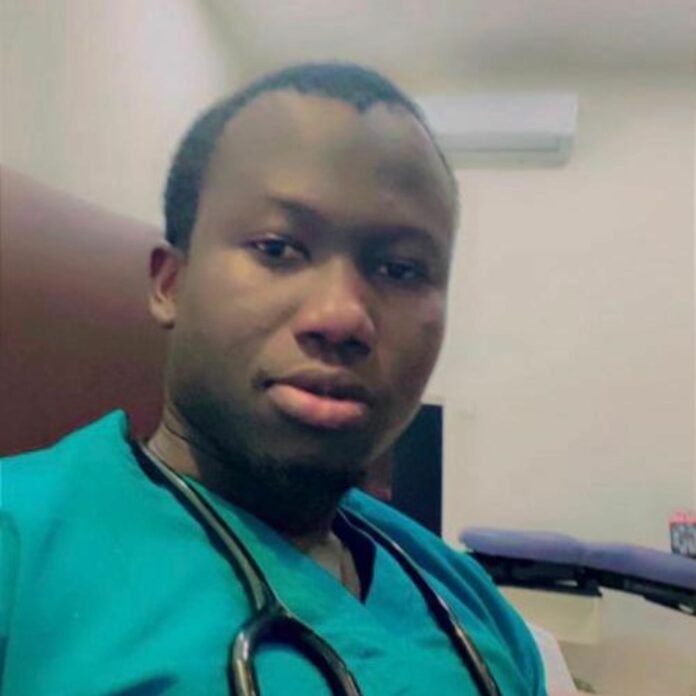By: Michaella Faith Wright
In a revealing and comprehensive interview with The Fatu Network, Mass Manneh, the Head of the Department of Major Trauma, Intensive Care Unit, and Ambulance Service at Afrimed International Hospital, shed light on the alarming rise of kush use and its devastating effects on the Gambian population.
Kush, a potent synthetic cannabinoid, has become increasingly prevalent among the youth in The Gambia. Its dangerous effects have prompted healthcare professionals and authorities to sound the alarm. Mr. Manneh detailed the signs and symptoms associated with kush use, emphasizing its severe impact on both physical and mental health. He explained that users often experience extreme agitation, hallucinations, and violent behavior, which can lead to life-threatening situations. “We have seen patients come in with severe psychosis, unable to distinguish reality from hallucination, putting themselves and others at risk,” Mr. Manneh noted. In addition, long-term use can result in chronic health issues such as respiratory problems, heart complications, and severe mental health disorders.
Addressing the situation within the emergency care unit, Mr. Manneh highlighted the increasing number of kush-related cases. He outlined the hospital’s approach to handling these emergencies, which often involves immediate medical intervention to stabilize patients, followed by comprehensive treatment plans aimed at rehabilitation. “Our first priority is to ensure the patient’s safety and stability. This often involves sedation and close monitoring. Once stabilized, we work on a long-term treatment plan, which includes mental health support and addiction counseling,” Mr. Manneh explained.
Mr. Manneh stressed the importance of societal involvement in combating the kush epidemic. He called on the community to recognize the gravity of the situation and take proactive measures to prevent young people from falling prey to this dangerous substance. “We see too many young lives lost to kush,” he emphasized, urging a collective effort to fight against its spread. He further explained that peer groups play a significant role in influencing the younger generation, often leading them astray. “Peer pressure and the desire to fit in can push young individuals toward experimenting with kush. Unfortunately, they are not fully aware of the irreversible damage it can cause,” he said.
Despite the challenges, Mr. Manneh expressed hope and determination. “As a medical professional, I urge everyone, from elders to government officials, to join hands in this fight against kush. Afrimed International Hospital is committed to raising awareness and providing the necessary support to combat this menace.” He emphasized the role of education and awareness campaigns in curbing the spread of kush. “We need to reach out to schools, communities, and families to educate them about the dangers of kush. Knowledge is our strongest weapon in this battle,” he asserted.
In closing, Mr. Manneh reaffirmed Afrimed International Hospital’s dedication to continuing its efforts in educating the public and supporting those affected by kush. He called for a unified front to tackle this issue, emphasizing that only through collective action can significant progress be made in eradicating the dangers of kush in The Gambia. “This is not just a healthcare issue; it is a societal problem that requires a multifaceted approach. We need the support of the government, civil society, and every concerned citizen to make a real difference,” he concluded.
Mr. Manneh’s interview highlights the critical need for awareness, prevention, and treatment efforts to address the growing crisis of kush use in The Gambia. The commitment of healthcare professionals like him, combined with the support of the broader community, is essential in combating this dangerous trend and safeguarding the future of the nation’s youth.




